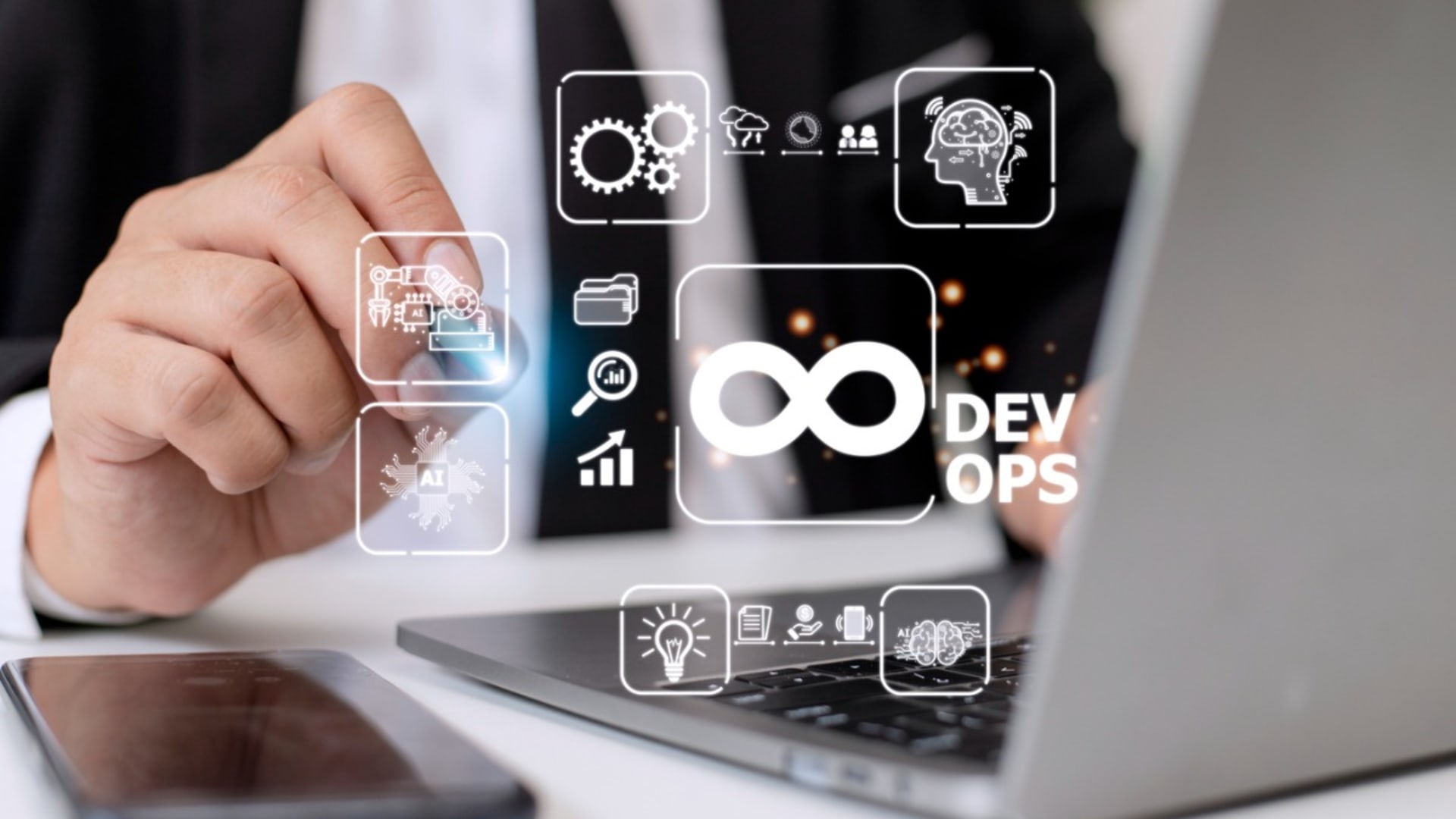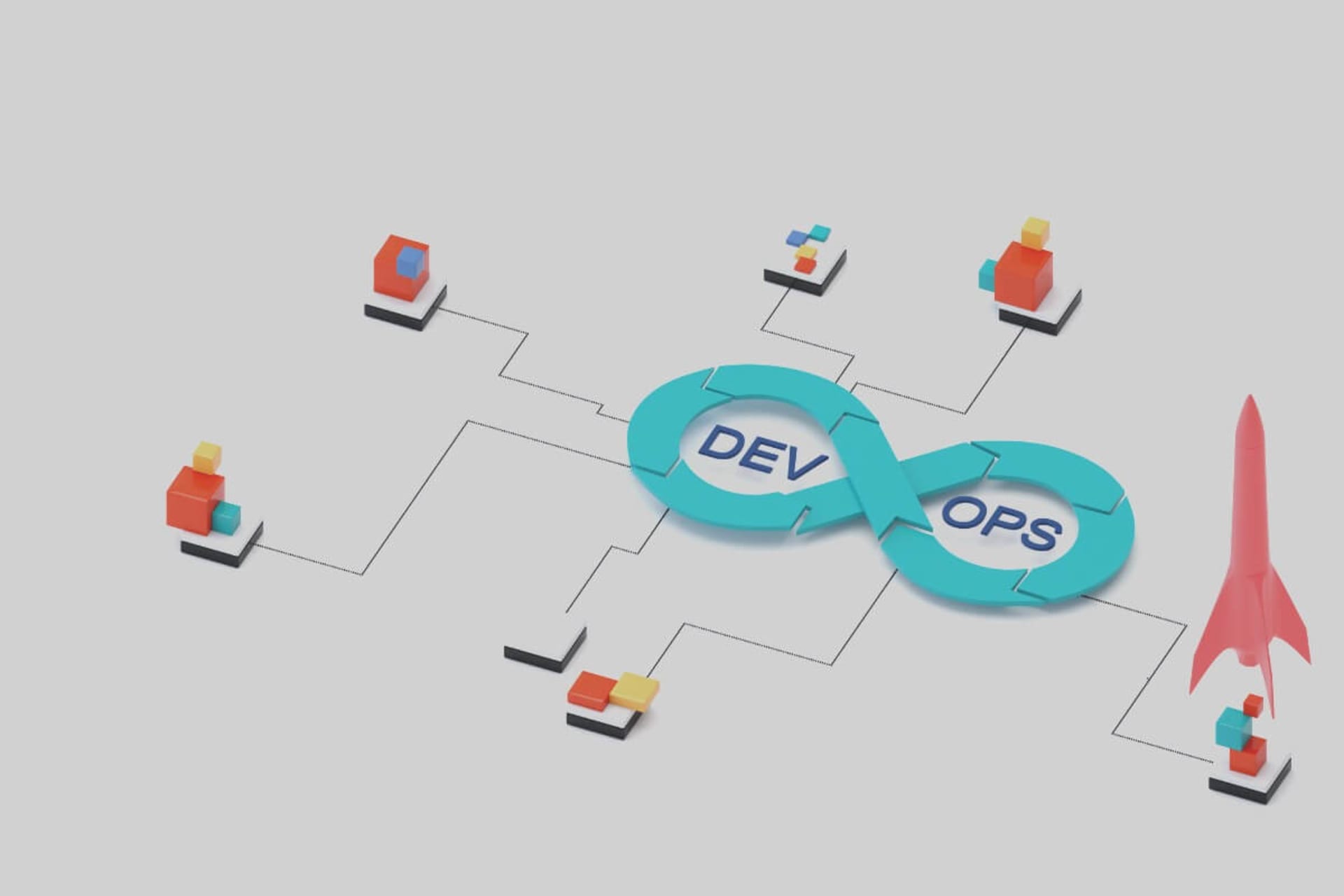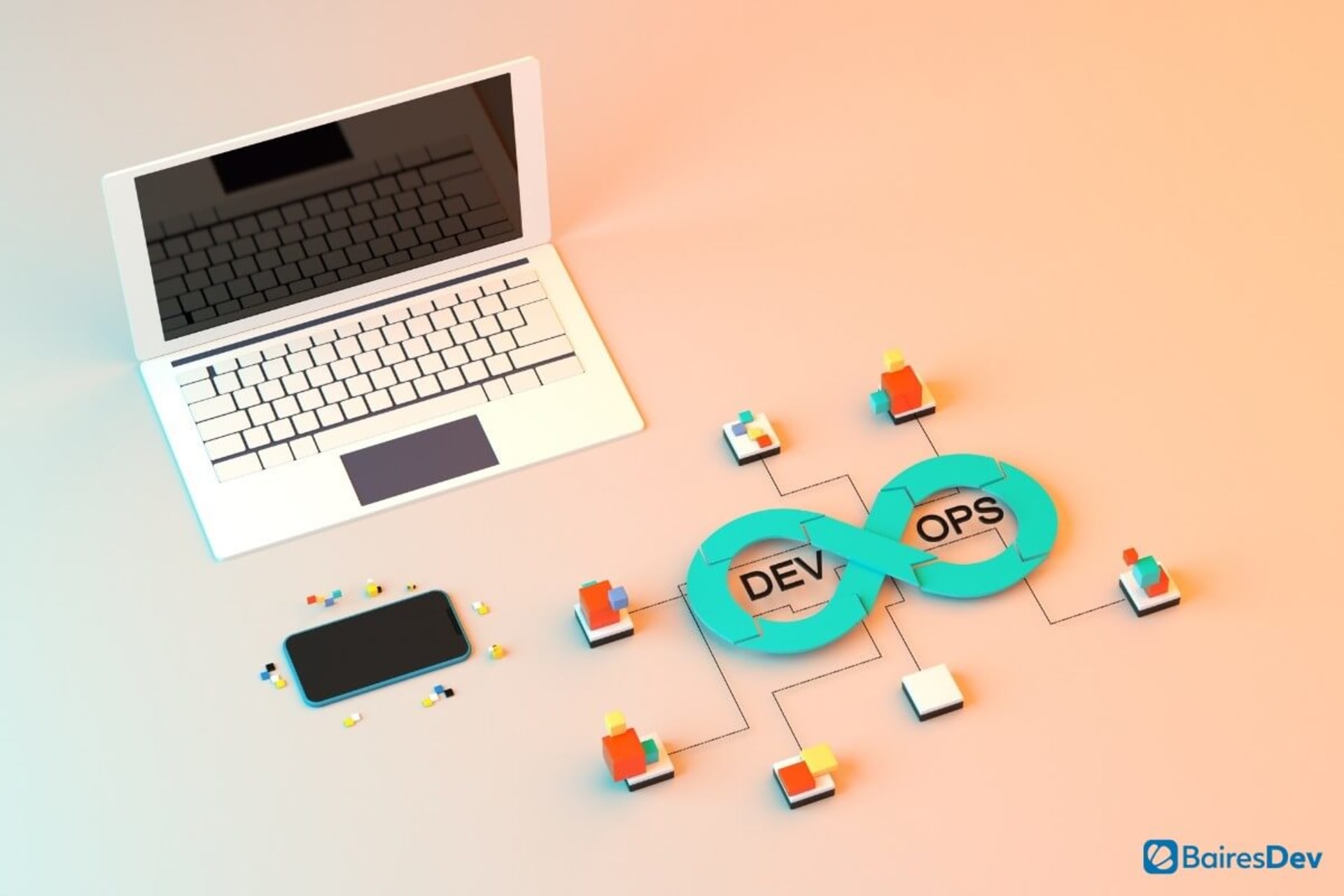Hire DevOps Engineers
Our top 1% of tech talent has already undergone a rigorous vetting process. Get bilingual, nearshore DevOps engineers on your team within 2 weeks.
500+ companies rely on our top 1% tech talent.
No time to find the top talent yourself? Skip the hassle of recruitment.




The Ultimate Guide for Hiring DevOps Engineers
DevOps isn’t just a methodology. It’s a philosophy that transforms how companies manage the software development life cycle. By encouraging collaboration between development and operations and leveraging automation tools, DevOps engineers speed up delivery without compromising stability. The human element plays a crucial role, making hiring the right talent a key to success.
With over 1,250 successful projects under our belt, we’ve seen firsthand how skilled DevOps engineers can drive impactful results. Are you wondering how you, too, can find top candidates who excel at automating infrastructure, managing cloud platforms, and fostering collaboration? We’re happy to share our insights.
Based on over a decade of experience, this guide offers practical advice to help you hire DevOps engineers with exceptional skill sets. Dive in and discover key technical and soft skills (plus example interview questions) you should consider during the recruitment process.
Before You Start Hiring
Project or Team Requirements
Start by outlining your team's goals and project scope. Will the team collaborate with development, security, or product teams? Are you focusing on infrastructure automation, rapid scaling, or implementing infrastructure as code (IaC)? Clearly defining these elements upfront lets you identify the skills and experience needed in a DevOps engineer.
Niche Experience in DevOps
Engineers with niche experience often solve problems faster than those without. For example, are you automating CI/CD? Seek out candidates skilled in Jenkins, GitLab CI, or CircleCI. Are you working on container orchestration? Kubernetes experience is valuable. What if you need cloud-native solutions? Look for engineers with experience in AWS Lambda or Azure Functions.
Modernization
Modernizing legacy infrastructure is a key responsibility for many DevOps roles. When hiring, consider your modernization needs. Seek out candidates with experience in cloud migration (AWS, Azure), containerizing applications (Docker or Kubernetes), managing CI/CD pipelines (Jenkins, GitLab), and using monitoring tools (Datadog or the ELK stack).
Experience in Preferred Software Development Methodology
Prioritize candidates familiar with your team's software development methodology. For Agile workflows, hire DevOps engineers with CI/CD integration experience. Engineers familiar with Kanban or Scrum are valuable for managing sprints and feedback loops. For Lean DevOps practices, look for DevOps experts who can optimize continuous flow, aligning development with business goals.
Experience in Your Industry
DevOps engineers with industry expertise bring valuable insights to sector-specific challenges. For example, engineers who know PCI-DSS in finance can secure data handling during automation. In healthcare, DevOps engineers who understand HIPAA can protect patient data during deployments. So it's a good idea to decide whether industry experience is a must-have, a nice-to-have, or not required.
14 Skills Every DevOps Engineer Should Have
The best DevOps engineers are both architects of automation and catalysts of collaboration. They're not confined to coding or system administration—they bridge the gap between operational necessities and applied custom solutions, ensuring smooth transitions from concept to customer.
But what distinguishes a top-tier candidate? It's more than familiarity with the software delivery process, the latest cloud platforms, or crafting clever automation scripts. The best DevOps engineers can tackle the intricacies of continuous integration while clearly explaining complex concepts to non-technical colleagues.
From managing infrastructure to streamlining deployment pipelines, these versatile experts juggle multiple roles throughout the software development life cycle. The following are the essential skills that make DevOps engineers indispensable in grounding business needs into any quickly evolving technology stack.
Technical Skills to Look for in Your Ideal DevOps Engineer
1. Cloud Computing Expertise
The best DevOps engineers are cloud savvy—skilled in platforms like AWS, Azure, and Google Cloud. They leverage these services to deploy, manage, and optimize resources efficiently, which reduces costs and improves scalability.
2. Infrastructure as Code (IaC)
To ensure consistent environments and faster deployments, DevOps engineers should know how to use Infrastructure as Code tools like Terraform, CloudFormation, or Pulumi. With these tools, they can automate and manage infrastructure more effectively, resulting in better reliability.
3. Continuous Integration/Continuous Deployment (CI/CD)
Speed and reliability are everything. DevOps engineers set up CI/CD pipelines with tools like Jenkins, GitLab CI, or CircleCI to automate building, testing, and deploying code. The result? A faster development process and more reliable releases.
4. Containerization and Orchestration
Excellent DevOps engineers use Docker to create containers and Kubernetes with Helm charts to orchestrate and manage workloads at scale. By isolating environments and managing workloads, these tools let engineers deploy applications more efficiently, enhance scalability, and improve reliability.
5. Scripting and Automation
Strong scripting skills in languages like Python, Bash, or PowerShell are a must for DevOps engineers. Automating repetitive tasks reduces manual work, boosts efficiency, and speeds up projects while minimizing errors.
6. Monitoring and Logging
Monitoring tools help DevOps engineers track system performance, detect issues early, and maintain system health. Good candidates should know how to use tools like Prometheus, Grafana, ELK Stack, or Datadog.
7. Security Best Practices
DevOps engineers should apply DevSecOps principles throughout the pipeline to keep systems secure and meet compliance requirements. They also use tools like Snyk, Aqua Security, Twistlock, and OWASP ZAP to detect and mitigate vulnerabilities early. For secure secrets management, they should work with HashiCorp Vault or AWS Secrets Manager.
8. Version Control Systems (Git)
Version control is essential for managing changes to code and making sure that multiple engineers can work on the same codebase without conflicts. Think of Git like the DevOps time machine. With it, engineers can track changes, simplify team collaboration, and keep code stable.
9. Networking Fundamentals
Networks are the invisible threads that keep everything connected. DevOps engineers with a strong grasp of DNS, VPNs, load balancing, firewalls, and reverse proxies like Nginx can manage and resolve network issues. This leads to secure and reliable communication between systems.
10. Configuration Management
DevOps engineers benefit from experience with configuration management tools like Ansible, Puppet, or Chef. These tools help maintain system consistency, manage settings across environments, and make maintenance easier—while making deployments more predictable.
Soft Skills to Look for in Your Ideal DevOps Engineer
11. Openness to Feedback
DevOps is all about iteration and improvement. Look for experienced DevOps engineers who see constructive feedback as a way to grow rather than a blow to the ego. For example, do they seek feedback after deployments to find ways to improve? Do they actively participate in retrospectives? Are they open to changing their approach based on team suggestions? Ask questions that gauge openness to feedback.
12. Analytical Thinking
DevOps work involves dissecting complicated tech stacks, weighing the risks and rewards of different approaches, and designing customized strategies for infrastructure provisioning and continuous deployment. So strong analytic skills are an absolute must. To gauge these, consider using technical assessments, scenario-based questions, or problem-solving exercises during interviews.
13. Grit and Adaptability
Minor setbacks and major crises are an ongoing occurance in DevOps. Engineers who can maintain their composure, rally their team, and pivot when they hit obstacles are a huge asset. For instance, when a critical monitoring tool failed during a major release, did they calmly and quickly implement a backup solution? Or did they panic, blame others, and create confusion?
14. Insatiable Curiosity
With DevOps tools evolving quickly, engineers must have the drive to expand their skills. This means staying updated on configuration management, experimenting with continuous delivery, and mastering trends like serverless and AI-driven DevOps. Look for candidates who embrace new tools and processes, such as GitOps or edge computing.
9 Questions to Identify Top DevOps Engineers
When interviewing DevOps engineers, it's important to ask questions that first assess the candidates' technical skills and knowledge. Employers will also usually conduct a coding test to further assess specific on-the-job knowledge.
The following set of questions aims to uncover not only the engineers's technical knowledge but also their problem-solving abilities, teamwork, communication skills, and adaptability—all crucial traits for success in a collaborative environment.
Here are a few examples of technical interview questions:
1. How would you troubleshoot a deployment that fails due to a missing environment variable?
I’d start by checking the logs to confirm that the issue is a missing environment variable. If it is, I’d inspect the environment configuration—whether it's a .env file, secret manager, Terraform/CloudFormation template, or part of Kubernetes. Often, the issue is a typo, missing entry, or pipeline misconfiguration. I’d correct the issue, redeploy, and implement a pre-deployment check to prevent the same issue from happening again.
2. Can you explain how you would set up monitoring and alerting for a microservices-based architecture?
With microservices, I’d set up monitoring at both the infrastructure and application levels using tools like Prometheus and Grafana. I’d configure Prometheus to scrape metrics from the services, like CPU usage, memory consumption, or response times, and then visualize those metrics in Grafana. For logs, I’d recommend using something like ELK (Elasticsearch, Logstash, and Kibana) or a managed service like Datadog. To track service dependencies, I’d use Jaeger for distributed tracing. The next step would be setting up alerting. I’d define key thresholds—like response time exceeding 500ms—and configure alerts to notify the right teams through Slack or PagerDuty.
3. How do you handle configuration management across multiple environments (e.g., development, staging, and production)?
I usually rely on tools like Ansible or Puppet for configuration management. My goal is to keep everything version-controlled and consistent across all environments. I’d start by defining the configurations in code, ideally in a way that uses templates or reusable modules. For sensitive information like API keys, I use tools like HashiCorp Vault.
When deploying across different environments, I create environment-specific overrides, so development, staging, and production can each have unique configurations—like pointing to different databases—while the core setup remains consistent. Finally, I’d integrate it with the CI/CD pipeline to ensure deployments are seamless and configurations don’t drift over time.
4. What’s your process for managing infrastructure as code (IaC)? Can you walk me through an example project?
I usually work with Terraform when setting up cloud infrastructure. In one of my recent projects, we needed to provision resources on AWS. The first step was writing Terraform modules to standardize common resources, like EC2 instances, S3 buckets, and VPCs. Once we had that, we used a Git repository to store the IaC files. Every change to the infrastructure required a pull request, and we used Terraform Cloud for state management. The beauty of IaC is that once we applied a configuration, we could roll it back if needed.
5. How would you design a CI/CD pipeline for a legacy application that doesn’t support containerization?
Working with legacy systems can be tricky, especially without containers. First, I’d identify what parts of the deployment can be automated—like running unit tests, building the application, or deploying artifacts to a staging environment. Jenkins is often a good fit for legacy systems.
The pipeline would first pull the latest code from version control, run automated tests, build the application, and deploy it to a staging environment. I’d integrate an artifact repository like Nexus to manage builds and versions. For production, I’d make sure there are manual approval gates to reduce the risk of breaking anything. Even though we can’t containerize it, we can still improve efficiency by automating repetitive tasks and keeping deployments as smooth as possible.
6. How do you handle a situation where two team members disagree on a deployment approach?
This question evaluates the candidate’s conflict resolution skills, specifically how they manage differing opinions, maintain focus on shared goals, and promote teamwork without compromising delivery timelines.
7. Can you walk me through how you would optimize a CI/CD pipeline with frequent bottlenecks?
This question gauges the candidate’s troubleshooting skills and practical experience with CI/CD tools. Their answer shows how they identify bottlenecks, streamline processes, and adapt pipelines to improve speed and reliability under pressure.
8. How do you ensure smooth communication between development and operations teams in a high-pressure environment?
This question explores the candidate’s ability to manage stress while keeping communication clear and effective. It also assesses how they coordinate cross-functional efforts, avoid silos, and create alignment between teams to meet goals without friction.
9. How would you manage secrets (like API keys) to ensure security without disrupting workflows?
This question evaluates the candidate’s understanding of secure practices in DevOps. It checks their familiarity with secret management tools, ability to balance security with accessibility, and knowledge of best practices like secret rotation and encryption.
Frequently Asked Questions
What is a DevOps engineer?
A DevOps engineer ties software development and IT operations together so teams can work together and deliver software faster and more reliably. They build and manage tools to automate testing, integration and deployment. They use coding skills, cloud and system administration to keep things running smoothly.
Their main focus is on removing delays, improving efficiency and getting software from development to production as fast as possible. DevOps engineers also set up monitoring to catch problems early, creating a smoother workflow for both dev and ops teams.
How do I evaluate a DevOps engineer’s technical skills?
You can test a DevOps engineer’s technical skills through hands-on coding challenges, scenario based assessments, system design interviews and deep dive into their past projects.
What experience level should I target when hiring DevOps engineers?
It depends on your project complexity and team needs. Senior DevOps engineers have deep expertise in designing and managing complex systems. They excel at strategic tasks like infrastructure architecture, automating large scale deployments and implementing security best practices. Senior engineers also mentor junior staff and lead technical decision making.
Junior DevOps engineers are skilled at executing predefined tasks like maintaining pipelines, setting up monitoring and resolving routine deployment issues. While they may need guidance, they can grow quickly with proper support.
Mid-level engineers are a good balance. They can handle day to day operations and contribute to process improvements without needing constant oversight.
How important is cloud expertise for DevOps engineers?
Cloud is key for most DevOps roles today. Engineers should be proficient in at least one major cloud (AWS, Azure or Google Cloud Platform) and understand cloud native concepts like serverless computing and microservices architecture. Familiarity with multi-cloud strategy is also valuable to achieve flexibility, optimize costs and minimize vendor lock-in
Should DevOps engineers have development experience?
While not always necessary, development experience can be a huge asset. DevOps engineers with coding background (Python or Go) can work more closely with developers and contribute to application code when needed.
What's the difference between a DevOps engineer and a DevOps developer?
DevOps engineers automate and manage the infrastructure behind the software development process—CI/CD pipelines, configuration management and cloud platforms like Google Cloud and Azure DevOps. DevOps developers write code and ensure it integrates into automated pipelines. Both roles use DevOps tools and responsibilities overlap.
How long does it take to hire DevOps engineers?
When done in-house it can take several months to hire a DevOps engineer especially when looking for top talent. But with us you can get vetted dedicated DevOps engineers in as little as 2-4 weeks.
What are the benefits of outsourcing DevOps services?
Outsourcing DevOps services means faster project start-ups, access to a wider talent pool, flexibility to scale up or down and cost savings. It also allows your internal team to focus on core business goals while we handle the DevOps heavy lifting.

- Hire DevOps Engineers
How Businesses Can Overcome the Software Development Shortage
BairesDev Ranked as one of the Fastest-Growing Companies in the US by Inc. 5000









